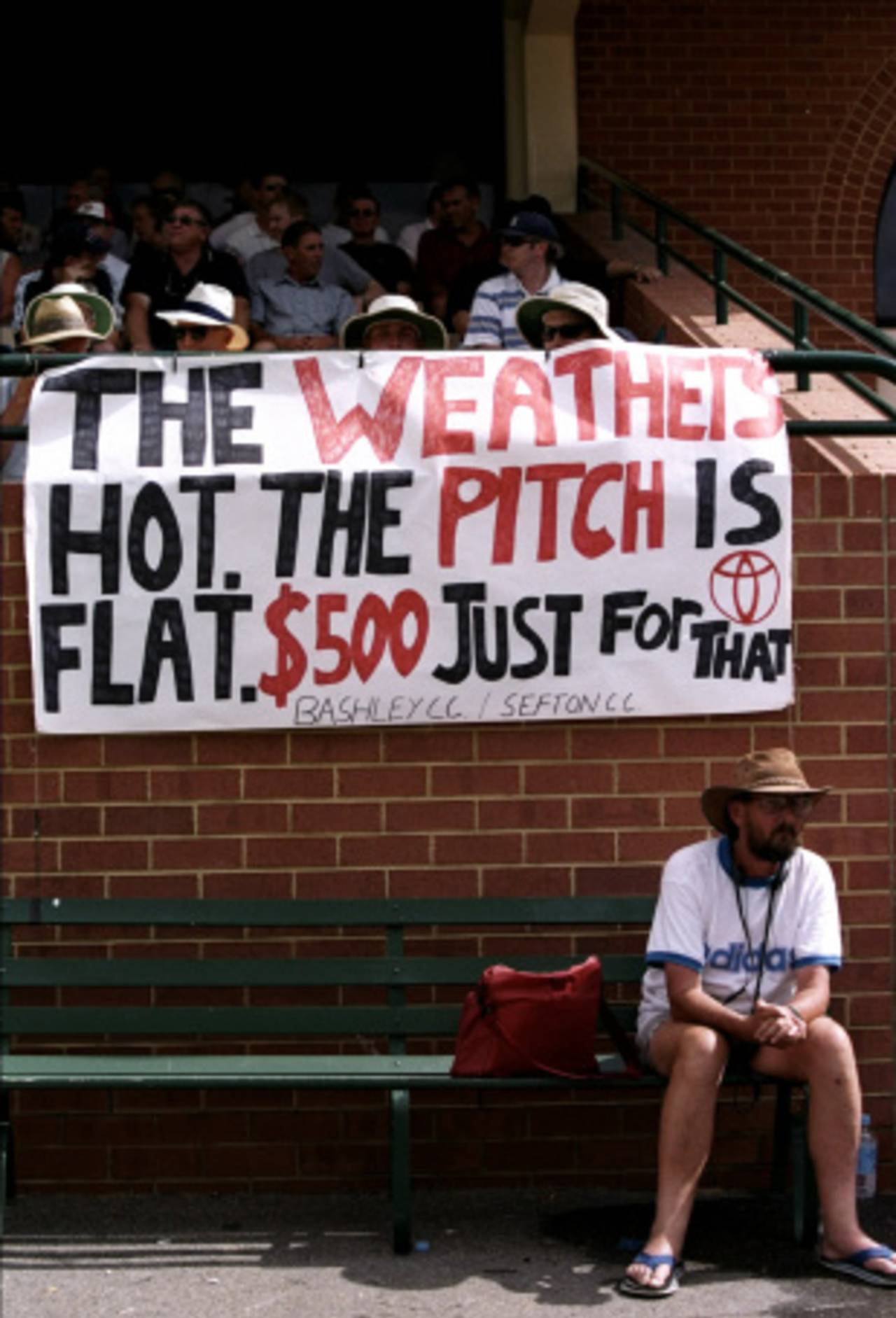Spot-fixing, or fancy-fixing, is not new. It has been around for as long as results of entire matches have been being fixed, but only those who were involved in it, bookies and players, knew of it at the time. "Fancy-fixing" is the term bookies themselves use for it. Focusing on small events within games rather than entire games themselves gained prominence when the heat of match-fixing got to be too much for bookies.
All kinds of bets are placed under this kind of fixing. Generally the more popular ones are session bets, where in a 50-over ODI, bets are placed on how many runs will be scored or how many wickets will fall in a 15-over session. There are clever ways to manipulate this and maximise your profits if players are involved.
For example, if the original bet is for, say, 60 runs in the first 15 overs, the openers can hit a few early boundaries, drive the run-rate up and make that target seem unfeasibly low. This changes the odds in the market and the batsmen will then manipulate the run-making so that the score after 15 overs is one that will be of most benefit to the bookie financially.
I have seen this happen in international games, in big tournaments. Strong teams, for example, make huge scores of 100-plus in the first 15 against other strong teams, but against minnows they struggle to 60-odd. I remember a game where one side got to 82 for 0 after 12 overs and ended on 87 after 15 - which just doesn't seem right.
From what I know, some cricket matches have been scripted, like movies or plays, where it is decided that so many runs are to be scored in the first session of a Test, or how many in a certain over, and so on.
There are also all kinds of other events bookies will take bets on. Just about any event you can think of - and cricket has so many - is open to spot-fixing (see sidebar). The problem is that you could end up suspecting every incident in every match, because theoretically any of them could be fixed.
For an idea of the lengths that bookies go to, consider that I have heard in some cases of bookies backing a certain player, making sure that he does well in games (by paying his opponents to fail) and thus helping him become captain and getting him on their books.
To me, it started with horse-racing, where the jockey controls the horse and so can influence results, but so many sports are on TV now - tennis, football, F1 - and bookies gravitate towards sports that are popular. These days there isn't a single match, especially a limited-overs game from anywhere in the world, that you need miss: all of them, from Australia, England, West Indies, India and Pakistan, are being shown on some TV channel somewhere. That means some bookie somewhere is interested in making money off the game, and if he is really interested he will contact a player. At the domestic level, how do you stop it? Some countries like England or Australia may have systems in place to control this, but others don't. Even in England now there are
problems in county cricket.
You look at some of the financial equations of big sporting clubs, cricket included. They pay huge amounts in salaries or transfer fees and they run on losses. How do they recoup that money? Is there not an opportunity there for a bookie, or a network, to step in?
I honestly don't think it can be stopped, because it is very difficult for those who haven't played the game to figure out which events are fixed and which aren't. I don't think the ICC has been able to perform its duty to its fullest extent. The Anti-Corruption Unit (ACSU) is spending a lot of money but we have not seen any audit report or results for it. You can stop contact at one level between players and bookies, but outside of the match and touring environment, how can you police it?
I think the administration has become complacent in cracking down on fixing. In June 2003 during an ICC meeting held in London I suggested that a dummy match should be staged to spot the people involved in match-fixing, and I said that would help me provide them with solid information regarding bookmakers in Dubai, Mumbai and Karachi. But that offer was turned down.
Currently the ACSU hires former army and police officials. I suggest that people from Test-playing countries who understand and who have been vocal about this malpractice should be engaged. I am not saying that I should be hired, but former players do have an idea about the history of players from their respective countries.
Another suggestion would be to increase the involvement of local government and police authorities in each member country. They are better placed to know how these syndicates work and how they approach cricketers. I know the ICC does involve them to some extent, but this should be on a deeper level. Ultimately, though, it depends on the players themselves.
Every sportsman wants to secure his future, as no one can be guaranteed of a place in the side long-term. So when he is offered a sum of money that could equal his accumulated earnings of the next five years, naturally it will tempt him. If a player is selfish, he will be trapped, and in my view and experience, a top player is more selfish than an untalented one.
As told to Osman Samiuddin, Pakistan editor of Cricinfo
